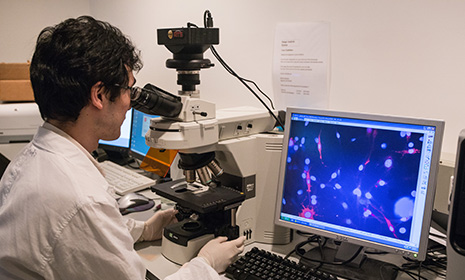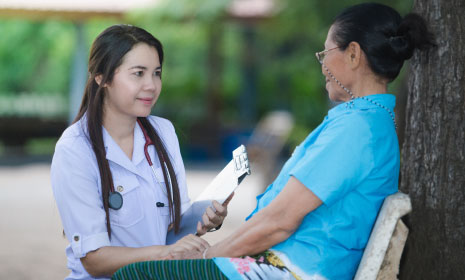HKU School of Public Health designated as a WHO Collaborating Centre for Infectious Disease Epidemiology and Control
The School of Public Health, Li Ka Shing Faculty of Medicine of The University of Hong Kong (HKU) announced today (January 8) that the School has been designated as a WHO Collaborating Centre for Infectious Disease Epidemiology and Control for four years with effect from December 10, 2014. The Centre will be headed by Professor Gabriel M Leung, Chair Professor of Public Health Medicine and Dean of Li Ka Shing Faculty of Medicine, and Professor Seto Wing-hong, Honorary Clinical Professor of our School. The designation of the HKU School of Public Health as a WHO CC is the first of such kind at the University.
A WHO Collaborating Centre (WHO CC) is an institution designated by the Director-General of WHO to form part of an international collaborative network set up by WHO in support of its programme at the country, intercountry, regional, interregional and global levels. At the present time, there are over 700 institutions in over 80 countries supporting WHO programmes in a wide range of global health areas such as communicable diseases, food safety, traditional medicine, occupational health, tobacco control and health promotion etc.. In China and Hong Kong SAR, there are a total of 59 and 6 WHO Collaborating Centres respectively.
The Schoolof Public Health is pleased to be the first unit at the University to be conferred the WHO CC designation. 'After the SARS epidemic in 2003, Government has provided strong support for the development of infectious disease epidemiology research at the University through the Health and Medical Research Fund (incorporating the former Research Fund for the Control of Infectious Diseases). This signal award of Collaborating Centre status by the WHO is the culmination of this partnership between HKU and the Food and Health Bureau for the protection of the public"s health in Hong Kong and across our region', said Professor Gabriel M Leung, Chair Professor of Public Health Medicine and Dean of Li Ka Shing Faculty of Medicine. Professor Malik Peiris, Tam Wah-Ching Professor in Medical Science, Chair Professor of Virology and Director of School of Public Health, added: 'From the SARS outbreak to the emergence of avian influenza subtypes such as H5N1, H7N9, H9N2 and H1N1 and the more recent MERS-CoV epidemic, HKU School of Public Health has been at the forefront of research in emerging infectious diseases, integrating epidemiology and laboratory research seamlessly'. Professor Peiris remarked that the designation marks an important milestone in the history of our School and the WHO CC looks forward to coordinating research on the control and prevention of infectious diseases and providing local and regional education and training under the capable leadership of Dean Leung and Professor Seto.
About WHO Collaborating Centres
WHO CC are institutions such as research institutes, parts of universities or academies, or governmental bodies which are designated by the Director-General to carry out activities in support of the Organization's programmes. Currently there are over 700 WHO collaborating centres in over 80 Member States working with WHO on areas such as nursing, occupational health, communicable diseases, nutrition, mental health, chronic diseases and health technologies.
About the School of Public Health, Li Ka Shing Faculty of Medicine, HKU
The HKU School of Public Health has a long and distinguished history in public health education and high impact research. With world leading research in infectious diseases as well as on non-communicable diseases of both local and global importance, the School has made significant contributions through its research and advocacy to improve the health of populations and individuals, both locally and globally. The School is a leading research and teaching hub in public health on influenza and other emerging viruses, control of infectious and non-communicable diseases, tobacco control, air pollution, psycho-oncology, behavioral sciences, life-course epidemiology, and health economics, health services planning and management. This work has informed international (e.g. the World Health Organization, Food and Agriculture Organisation of the United Nations), national and local public health policies.









.png)
